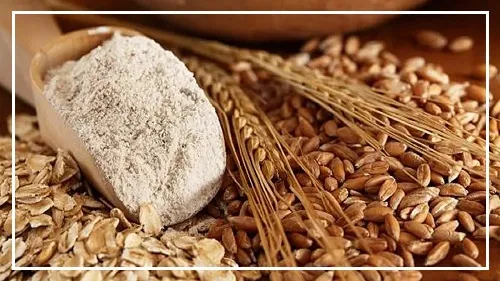Despite the arrival of the rabi season crop in the country’s mandis, wheat prices continue to soar, maintaining their high levels.
In response to this ongoing issue, the government has decided to take decisive action.
The Food Corporation of India (FCI), the government’s food storage agency, is set to commence e-auctions under the Open Market Sale Scheme (OMSS) starting from June 28.
During this auction, FCI aims to sell three to five lakh tonnes of wheat to small private buyers, including flour millers, bread manufacturers, and biscuit makers.
Consequently, the anticipated outcome is not only relief in the price of wheat but also a potential decrease in the prices of related products such as biscuits.
Government Aims to Sell 1.5 Million Tonnes of Wheat by March 2024
FCI Chairman and Managing Director, Ashok K Meena, announced this on Thursday, stating, “In the first e-auction on June 28, we plan to sell three to five lakh tonnes of wheat.
The registration process for this auction has already commenced.
” As part of the OMSS, the government has resolved to sell 1.5 million tonnes of wheat to various stakeholders,
including central pool flour millers, private traders, bulk buyers, and wheat product manufacturers by March 2024.
This initiative aims to effectively regulate wheat prices.
Auction Details and Reserve Prices
The reserve price for wheat has been set at Rs 2,150 per quintal for good and average quality, and Rs 2,125 per quintal for relatively lesser quality (URS) wheat until January 31 across the country.
Regarding rice, the auction is scheduled to begin on July 5, with capacity determined based on demand.
The reserve price for rice stands at Rs 3,100 per quintal for private individuals across the country until October 31, 2023.
Interested buyers can bid for a minimum of 10 tonnes and a maximum of 100 tonnes of wheat and rice. E-auctioning will be conducted from approximately 500 FCI warehouses spread throughout the country.
Persistent Price Increase Despite Rabi Season
Typically, when the Rabi and Kharif crops reach the mandis, prices of cereals, excluding wheat and rice, tend to decrease in open markets.
However, this usual trend has not been observed this time.
Wheat prices remain stubbornly high despite the initiation of the Rabi procurement program in April.
The open market price of wheat surpasses the minimum support price.
Consequently, the government has fallen short of its wheat procurement targets.
In January-February this year, when prices exceeded Rs 3,000, the government had to intervene by selling a substantial quantity of wheat in the open market.
